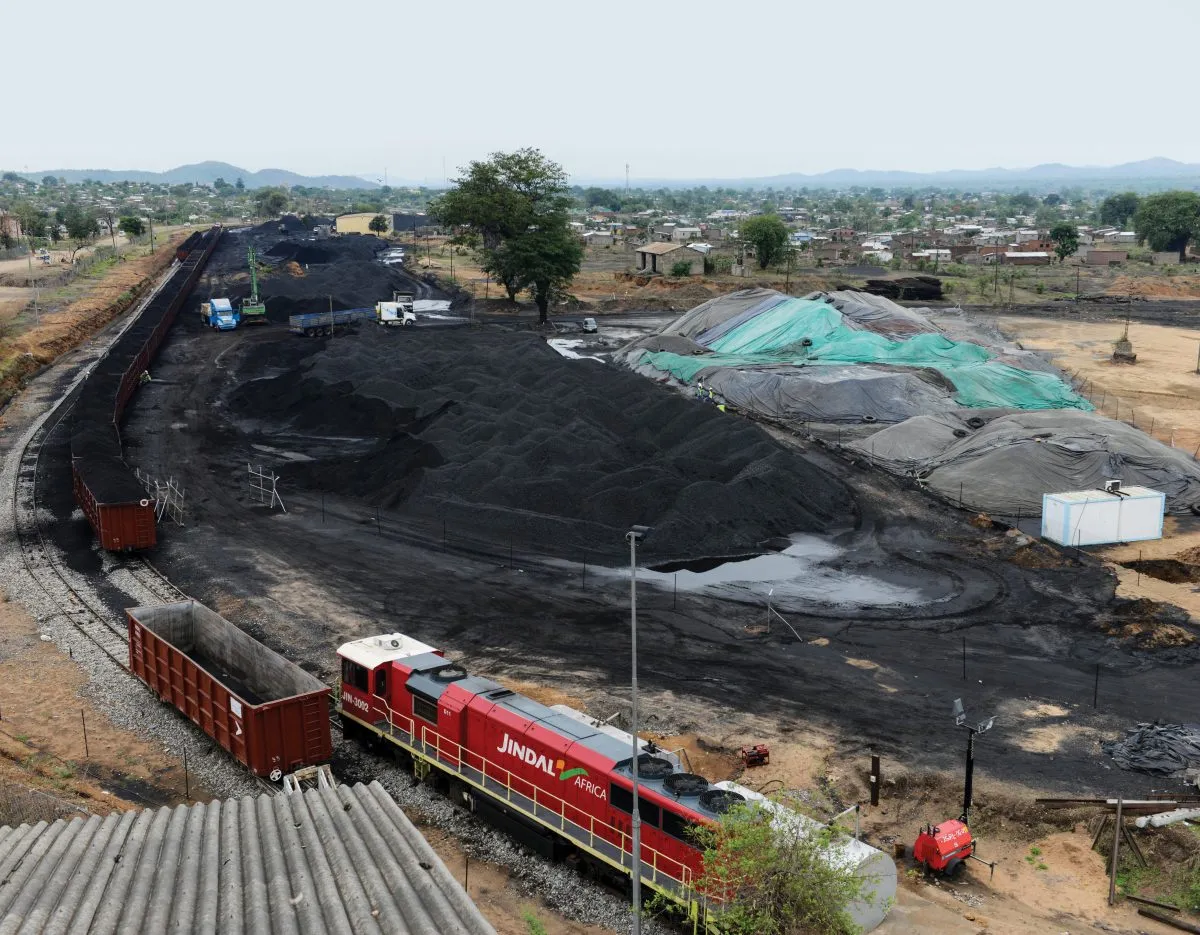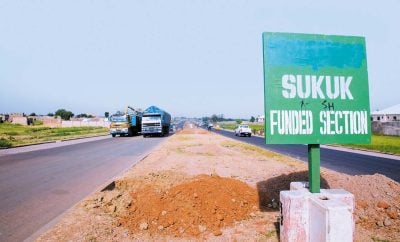
In February, the EU’s Copernicus Climate Change Service announced that average global temperatures in 2023 had been more than 1.5°C above the pre-industrial global average for the first time.
The international community promised in the 2015 Paris Agreement to keep climate change to below a 1.5°C rise in the long-term but the one-off 2023 breach does not yet constitute this pledge being broken.
However, in 2021 the International Energy Agency warned that global climate targets would not be met if new oil, gas and coal projects were sanctioned. As a result, commercial banks and multilateral organisations have come under growing pressure to stop financing such projects.
African banks are now being affected, partly as Africa will be harder hit than any other region by the effects of climate change. When COP27 drew up a list of the 10 countries most vulnerable to climate change, seven African states made the list: Chad, Somalia, Democratic Republic of Congo, South Sudan, Central African Republic, Nigeria and Ethiopia.
While almost everybody agrees that greenhouse gas (GHG) emissions need to be radically curtailed, several factors complicate the issue. Firstly, the West and more recent industrialised nations in Asia were able to build their economies on carbon emissions but many now want to prevent African states from following the same path. Yet Africa has been responsible for only about 3-4% of all GHG emissions.
Secondly, oil and coal projects are continuing to be developed in other parts of the world, partly to promote energy security in response to the Russian invasion of Ukraine. For instance, the UK announced in November that it would award new North Sea oil and gas licences annually, albeit that projects would have to meet net zero targets, presumably through carbon capture and storage.
US oil production is hitting record levels, with the US Energy Information Administration forecasting national output of 13.21m b/d by the end of this year. Chinese coal consumption is continuing to grow, although China Petrochemical Corporation now expects it to peak at 4.37bn tons/year in 2025 on the back of massive solar and wind power investment. Similarly, Chinese oil consumption is forecast to peak at about 16m b/d by 2028, as electric vehicle sales take off.
With new production being developed in richer countries, it seems hypocritical to block financing in Africa.
Finally, international attention largely focuses on energy and transport emissions, particularly of carbon, while ignoring other GHGs and industries.
African nations are being asked to forego projects that at least have the potential to drive economic development and support lifestyle change, by countries whose own populations are not being encouraged to reduce or phase out meat and dairy consumption.
Estimates of total livestock GHG emissions vary considerably but some sources put the figure as high as 19.6% of total emissions. The rapid rise of wind and solar power is to be welcomed but many other sources of emissions need to be tackled.
A report by the United Nations Environment Programme (UNEP) and the Climate and Clean Air Coalition concluded that cutting animal farming methane emissions will be key in the battle against climate change, yet these emissions are now growing faster than those of carbon.
The UNEP argues that the world needs to shift from animal to plant-rich diets but national governments are reluctant to encourage their populations to make the change.
Compensation for shelved projects
The only fair solution seems to be for richer countries to compensate African countries for shelved projects in full. Some steps have already been made in this direction but more needs to be done quickly. For instance, the International Partners Group of the UK, EU, France, Germany and Canada, was set up at COP26 to provide renewable energy investment to developing countries, with other partners joining since then.
The group concludes Just Energy Transition (JET) plans with national governments, with finance provided to promote electrification through low carbon means.
A total of $9.3bn in funding had been agreed for South Africa’s JET plan by the end of 2023 but the international community does not seem prepared to offer the level of financing needed to obviate all possible high emissions projects.
Changing global sentiment towards coal in particular is already having an impact on commercial considerations. Mozambique, for example, long struggled to develop its coal reserves because of limited transport infrastructure. New rail lines and port terminals were eventually developed but now large international companies, most recently Brazilian giant Vale, have pulled out just as the industry seemed about to take off.
Demand for coking coal for use in steel production remains strong but global interest in new sources of thermal coal for power generation is evaporating.
The issue has come to the fore this year, as South Africa’s biggest lender, Standard Bank, weighs up whether or not to help finance the construction of the $5bn East African Crude Oil Pipeline (EACOP).
Completion of the project will help transport 230,000 barrels of oil a day 1,440km from oil fields in the Lake Albert Basin in western Uganda to a new terminal close to the Port of Tanga in Tanzania.
The scheme will generate $1.5-3.5bn a year for the Ugandan government, equivalent to up to 75% of its current annual tax revenue, while Tanzania will be paid $12 a barrel in transit fees, or roughly $1bn a year.
However, it will also generate 34m tons of carbon emissions a year. Standard Bank is currently assessing EACOP’s overall impact. Standard Bank CEO Sim Tshabalala says that climate change is the biggest issue the world faces but also that electrification is necessary.
The pipeline is being developed by TotalEnergies of France (62%), Uganda National Oil Company (15%), Tanzania Petroleum Development Corporation (15%) and China National Offshore Oil Corporation (8%).
Proponents argue that the money from this and other hydrocarbon projects could be used to promote electrification on a continent where about half the population has no access to electricity. However, this link is not direct. Large oil-fired power plants are no longer a realistic option, so the connection is simply that government income could be used to finance power projects, including the extension of power grids. There is no guarantee that they will actually do so and some local campaigners argue that EACOP will only benefit East African elites.
Industrial and Commercial Bank of China and Standard Bank are financial advisers to the project and are seeking to secure co-financers for $3bn of lending, but Sumitomo Mitsui Finance appears to have withdrawn its involvement and many African and international banks have announced that they will not be participating.
In 2022, much to the annoyance of Ugandan and Tanzanian leaders, the EU called for work on the project to be suspended because of potential human rights abuses and climate concerns. A member of Uganda’s Chamber of Mines and Petroleum, Elison Karuhanga, commented: “Unlike wealthy nations which will remain wealthy even when their oil and gas revenue is removed, we cannot afford to gamble the future of Ugandan generations on hypotheticals.”
While Standard Bank has yet to set a timetable for ending its involvement in fossil fuels, rival Nedbank has done just that. It intends to end all new investment in new thermal coal mines by 2025 and new oil production by 2035, with zero exposure to fossil fuel-related activities by 2045.
Banks have several factors to take into account. They may wish to consider the ethical impact of financing high emission projects but more likely must take the negative PR implications of participating into account.
At the same time, they must consider whether their investments will operate for long enough to enable the developers to repay their loans. EACOP, for instance, will have to operate for at least 20 years but there is no guarantee that international demand will not have dropped off a cliff by then.
Bank executives may also have to start thinking about their own positions, as court cases in the UK and Australia have sought to rule on whether the directors of companies, including banks, could be personally held to account for the environmental impact of projects they finance.
Niger Delta financing
Nigerian banks must consider such factors now because of ongoing changes in the Niger Delta oil industry. International oil companies are selling their assets to much smaller Nigerian companies following years of attacks on oil industry infrastructure. Most recently, in January, Shell announced the sale of all its onshore and shallow water assets to four Nigerian upstream companies, ND Western, Aradel Energy, First E&P and Waltersmith, plus Africa-focused investor Petrolin.
Foreign firms have been reluctant to upgrade their infrastructure in the Delta because of the attacks so the domestic newcomers require substantial investment to help national oil production recover.
As international banks retreat from Africa, this offers opportunities for Nigerian banks, with some lending in local currency possible. However, it also poses challenges because opposition to oil production is likely to intensify on climate grounds and in addition because of security threats.
Interestingly, African Export-Import Bank has struck a deal with the African Petroleum Producers Organisation to create the African Energy Bank this year, to help finance African oil and gas projects.
Choosing between economic development and climate considerations is a difficult question for some of the world’s poorest countries. The ideal combination would be to improve energy supplies purely by utilising low emission sources. Yet at present African countries are not receiving anything like the financing required for the green transition.
Want to continue reading? Subscribe today.
You've read all your free articles for this month! Subscribe now to enjoy full access to our content.
Digital Monthly
£8.00 / month
Receive full unlimited access to our articles, opinions, podcasts and more.
Digital Yearly
£70.00 / year
Our best value offer - save £26 and gain access to all of our digital content for an entire year!

 Sign in with Google
Sign in with Google 



